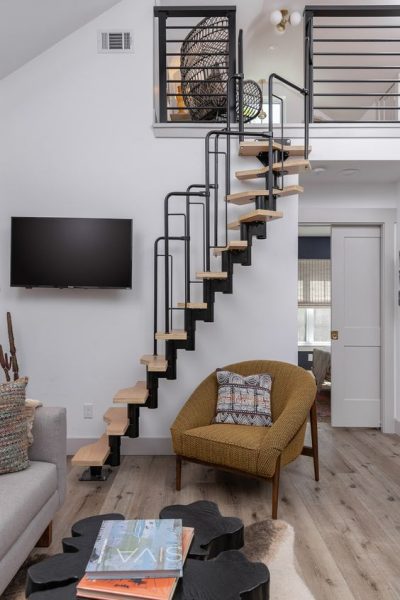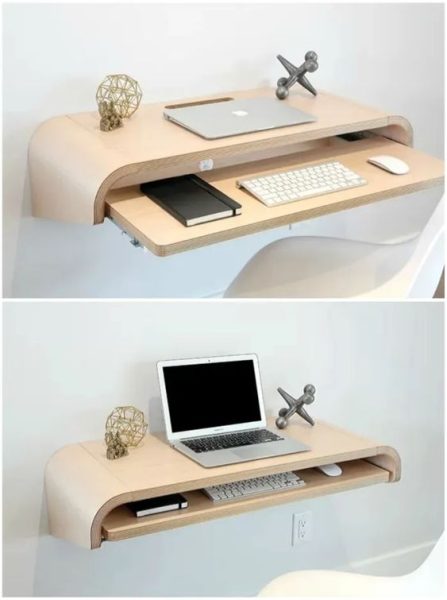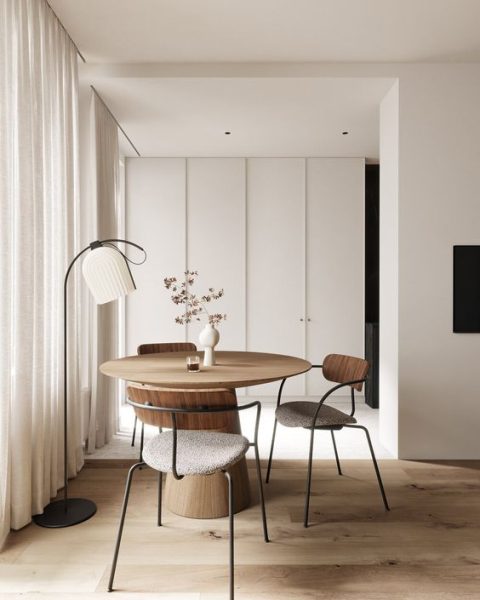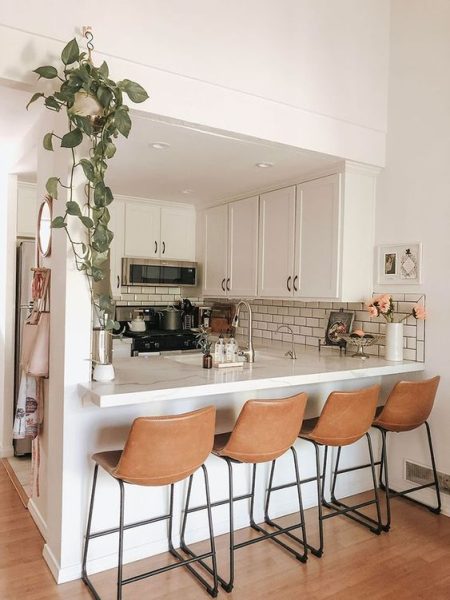Minimalism is known for its enduring features of Architecture & Interiors. It’s a process that demands the essence of a purpose in every object inside a particular space. Further, there is always a function unknowingly called remembrance in spaces. The motive is always to design by brainstorming the future application & purpose of space.

These spaces are known for their simplicity, form, and specific edges & clarity. The amalgamation of geometry specifically right angles, emphasis, design elements & principles leads to an occasional organic form. Furthermore, the blend of natural light, open areas, antique pieces add to the spaces. The minimalist spaces are more or less “optimum spaces” that are both functional & aesthetic.
And the trend of minimalism in spaces is rising in the coming years. For example, many open-plan kitchen extensions now follow these principles, with overhead windows and a limited palette.

1. Application of natural materials
Firstly, grey & white were the few colours that played a significant role in minimalism. But in recent times, many shades & hues are used in minimalist spaces. Additionally, they add aesthetics in different parameters to the spaces. Wood-based elements are trending these days.

2. Wooden Elements
It incorporates all, from ceiling to flooring including the minute furniture. The preferred colour of walls is mostly white & grey to increase the perceptual space of one’s mind. But to fill in the voids, designers come up with various wooden elements, such as distinctive seats and benches. Therefore results in astonishing & pleasant spaces.
3. Soft-edged large-scale furniture
Soft – edges have been a recent trend now. The designers earlier preferred clean edges furniture, sequential shapes but have evolved their ideas & shifted their approach towards different designs in furniture. Especially, the large-scale minimalist furniture is adopting soft edges. Curvy and rounded furniture shapes emphasize comfort and feel cosier than rough, rectangular designs.

4. Nature oriented colour palette
The expansion of varying colours is resulting in different experimental spaces which seem aesthetically rich as well as healthy in terms of a sustainable approach. The various shades used are caramel, light brown and new natural materials instead of only using white and beige.

5. Methods to avoid a sterile environment
After the complete set up of interiors of your room, you can use elements to add an emphasis to the basic design & it will enrich the lively aspect of the space. One can add varying curtains, pillows, antique pieces of crafts to add beauty to the space. Some other elements can be plants, unique flowers, etc. Next, because there aren’t many colours that go with this look, play around with different textures.

6. Advantages of Minimalistic Designs
The advantages hold varied parameters that people appreciate. Instead of large, untidy spaces, these optimum spaces with calmness are better perceived. Especially, the concept of cubicles was developed with the idea of creating optimum & undisturbed spaces. Additionally, the minimization of spaces is the need of the scenario that is using things that one needs most frequently and eliminating the ones, we don’t need frequently. The functionality aspect is taken concern of while designing these spaces. Every element in the room will blend into one relaxing harmony with the use of the right colours and textures, putting a smile on your face every time you walk inside.

7. Experimenting is the key
The concept of not being satisfied with the initial design of a minimalistic space is the key to making it better to varying extents. The environment of space shouldn’t stop enriching; the design is set to that evolution. One can use different elements such as vases, flowers, textured carpets, lamps & creative lights to add life to these minimalistic spaces.
The designers prefer experimenting most of the time to fulfill the essence of the space. They analyze the future use, its functionality & aesthetics that will further lead to remembrance in spaces.
For example, there is one favourite spot in the room for the majority of the people; it varies from age group to its application. The motive is to design the space fulfilling its utmost potential & serving its purpose on a complete scale. Therefore, keep experimenting & designing better spaces.









